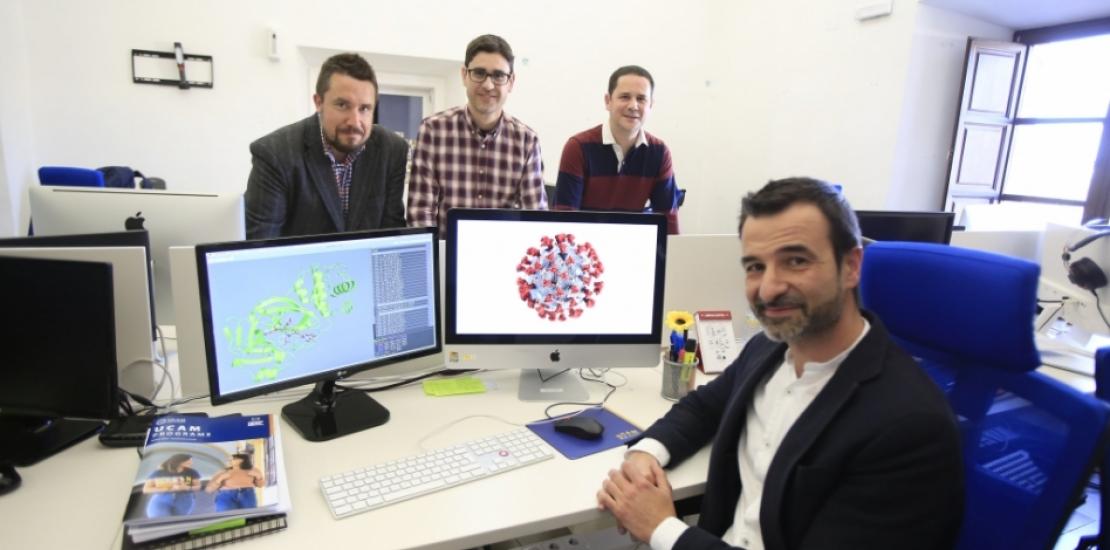UCAM researchers search through supercomputing a drug to treat coronavirus
The research group BIO-HPC begun in January a study with the Austrian company Innophore GmbH to propose possible drugs and it has already carried out the first selection
By using various supercomputers that are in the top 100 of the most powerful of the world, the group BIO-HPC is analysing thousands of molecules to predict which of them can be the most effective ones against the target proteins of the coronavirus that are being identified.
«At a molecular level, we can recommend drugs, but doctors are the ones who must take the decision», says Horacio Pérez, main researcher of the BIO-HPC team of UCAM Universidad Católica San Antonio de Murcia, which works through supercomputing to propose drugs that doctors can use to treat diseases. The research team, which also includes José Pedro Cerón-Carrasco, Jorge de la Peña-García, Antonio Jesús Banegas-Luna and Alfonso Pérez-Garrido, has been working on the coronavirus COVID-19 issue ever since January.
Pérez-Garrido states that «in the calculations performed we have used an approach that is called repositioning, which means that we do not propose a molecule from scratch, but we rather try to re-apply drugs that are known in another context, to see if they can be effective against a new disease, as is currently the case with regard to coronavirus COVID-19».
Progress in blood clotting and cancer
The BIO-HPC group has worked as well together with the Regional Blood Donation Centre in an international project granted by the Spanish Ministry of Science, Innovation and Universities to identify new drugs that allow to regulate, in a more efficient and safe way, blood clotting. It also makes researches on the Zika virus, together with the University of Hong Kong, and on rare diseases, cancer, etc. Some of its results have been published in high-impact international journals such as JACS and Nature Chemical Biology.




